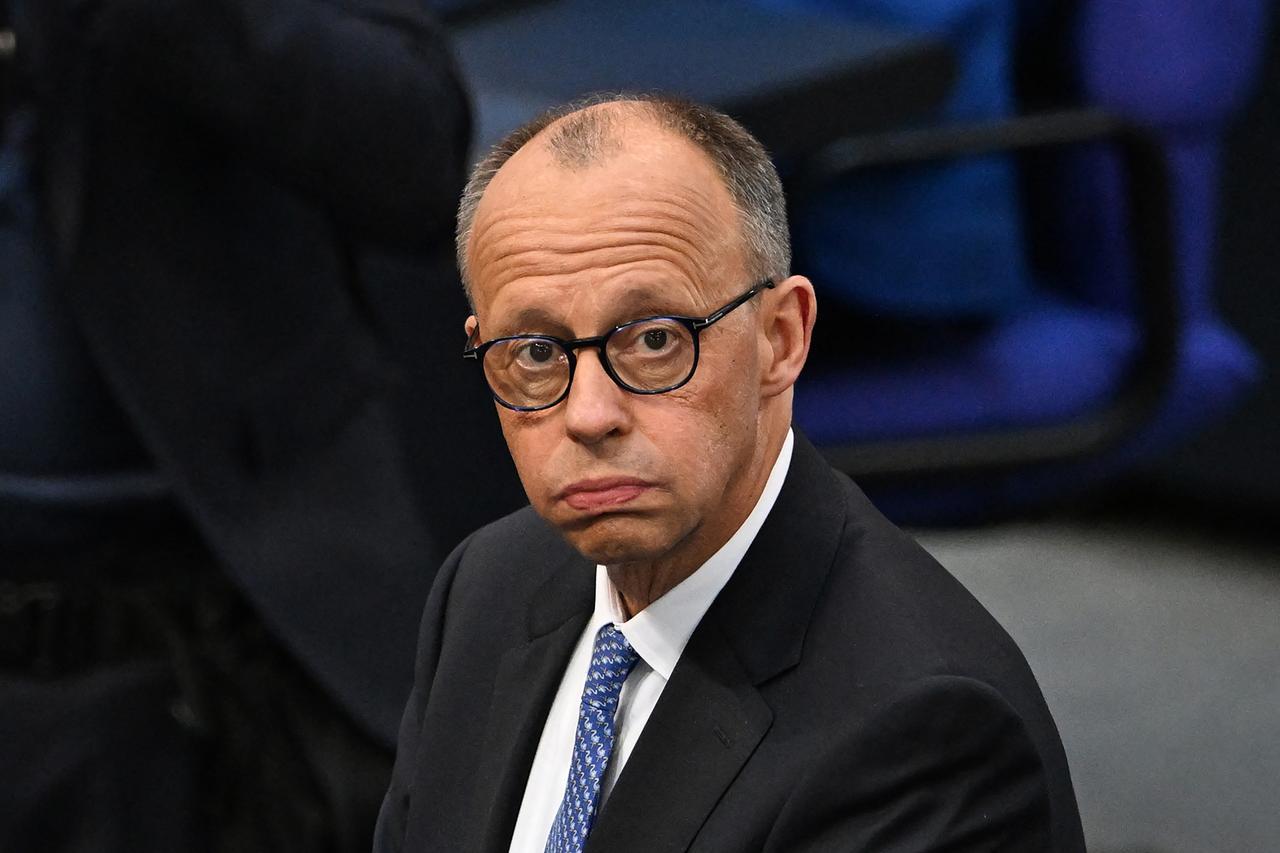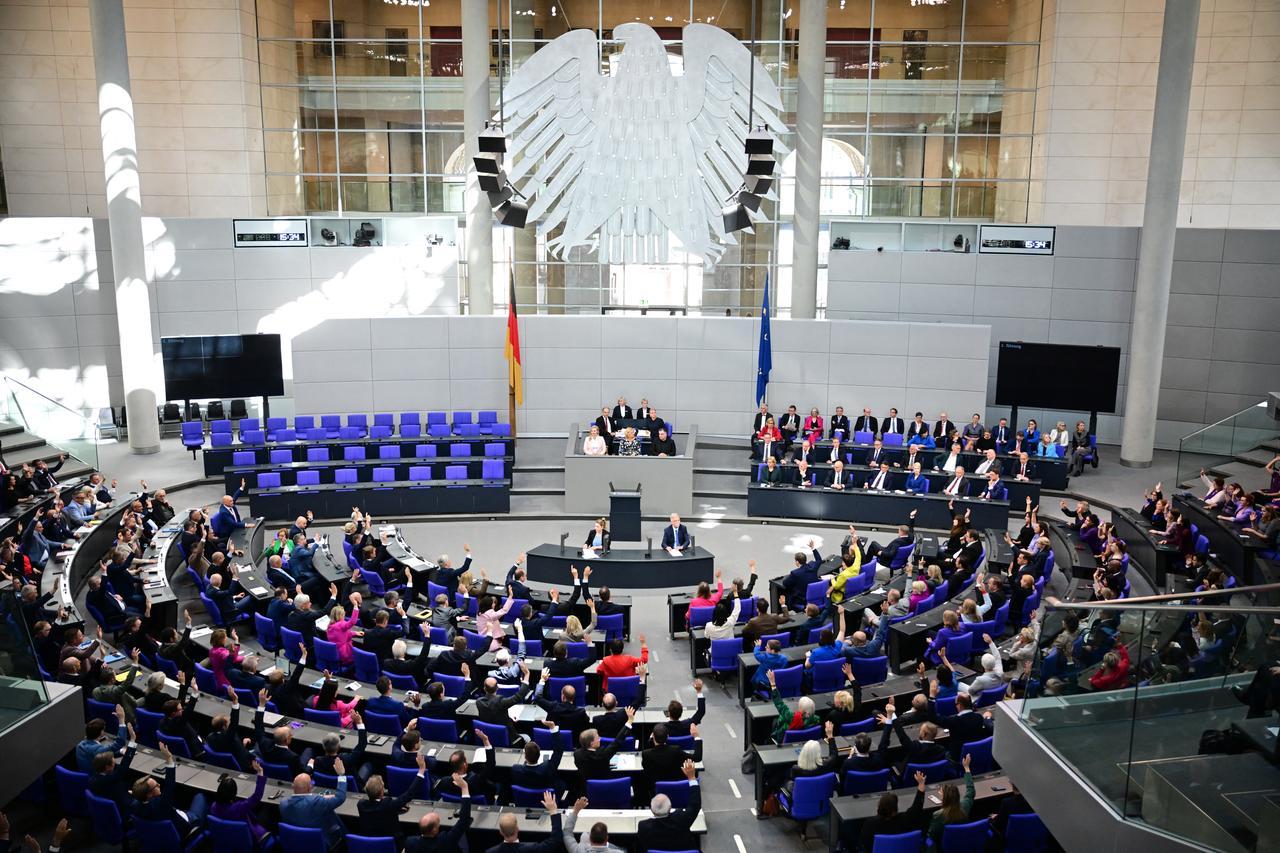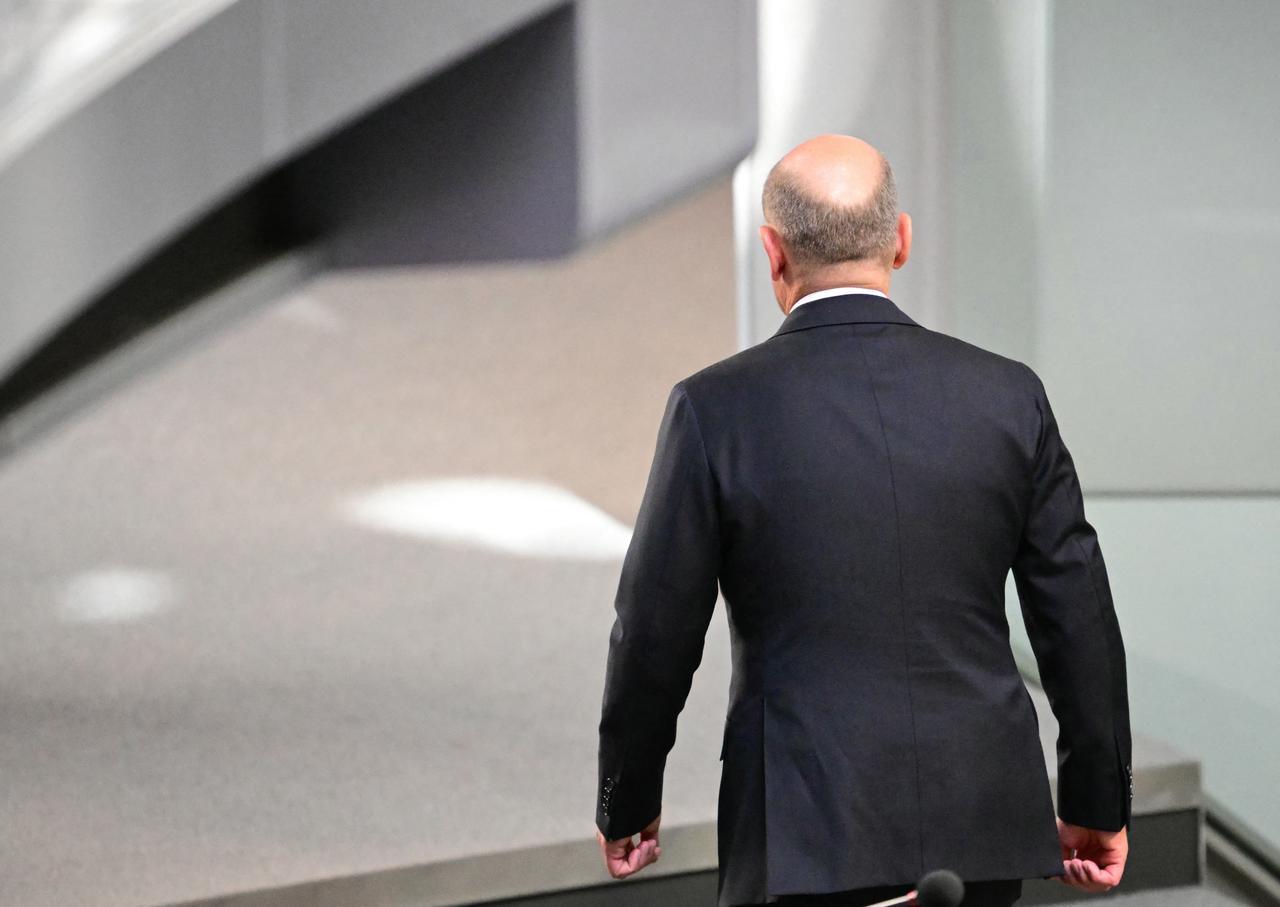
Friedrich Merz, leader of Germany's conservative CDU/CSU alliance, was elected chancellor on Tuesday in a dramatic second-round vote after suffering an unprecedented first-round defeat that exposed fractures in his coalition.
Merz, 69, secured an absolute majority with 325 votes against 289 in the secret ballot held in the Bundestag, Germany's lower house of parliament. His victory makes him the 10th post-war chancellor of Europe's largest economy. The new government brings together Merz's conservative bloc with the center-left Social Democrats (SPD) of outgoing Chancellor Olaf Scholz.

President Frank-Walter Steinmeier was scheduled to formally appoint Merz and his cabinet later Tuesday. The new chancellor plans to make his first foreign visits to Paris and Warsaw on Wednesday, following German diplomatic tradition.

Tuesday's events marked what analysts called a "bittersweet" victory for Merz, whose decades-long ambition to lead Germany was first thwarted by Angela Merkel, his one-time rival who went on to serve as chancellor for 16 years.
In a dramatic turn that stunned political observers, Merz failed to secure the required absolute majority of 316 votes in the first round, falling short by six votes with only 310 MPs supporting him. The setback marked the first such failure in Germany's post-war history.
"A bad start" is how Holger Schmieding, analyst at Berenberg Bank, described the initial defeat. "It shows that he cannot fully rely on his two coalition parties," Schmieding added, suggesting the result would "sow some doubts about his ability to fully pursue his agenda, damaging his domestic and international authority at least initially."
The far-right Alternative for Germany (AfD) celebrated Merz's early setback, with party co-leader Alice Weidel calling for him to "step aside" and clear the way for new general elections. Weidel described the first-round result as a "good day for Germany."
The political drama unfolded against a backdrop of urgent domestic and international challenges. "The whole of Europe, perhaps even the whole world, is watching this second round of voting," said CDU parliamentary leader Jens Spahn before the decisive ballot, urging lawmakers to "be aware of this special responsibility."
Merz, who brings extensive business experience but has never held a government leadership position, faces immediate pressures on multiple fronts. "We live in times of profound change, of profound upheaval... and of great uncertainty," he said on Monday, acknowledging that leading the coalition to success was a "historic obligation."
The incoming chancellor must address Germany's ailing economy while strengthening Berlin's role in Europe, particularly as it adapts to Donald Trump's return to the U.S. presidency.
Trump has increased pressure on European NATO allies, criticizing their defense spending levels and implementing tariffs that particularly affect export-dependent Germany.
Despite Merz's eventual success in the second vote, analyst Franziska Palmas of Capital Economics warned that the initial setback "does leave Merz severely weakened and suggests that hopes for more stability in German politics may be disappointed."
The tumultuous start to Merz's chancellorship highlights the fragile nature of Germany's new governing coalition at a time when stable leadership is needed to address economic challenges and a shifting geopolitical landscape.